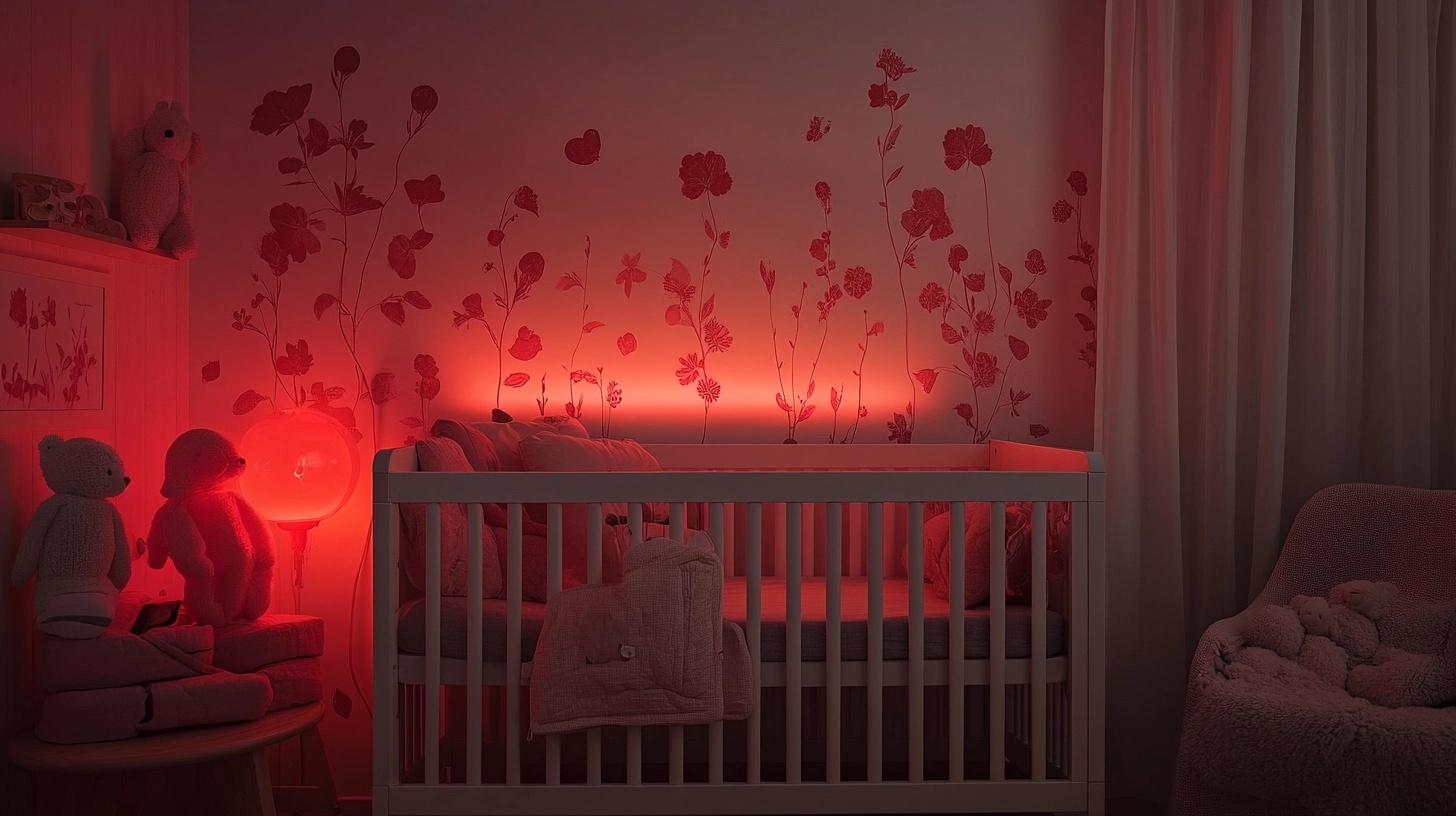As a parent, you might wonder why your little one wakes up so often at night.
The answer lies in a small hormone called melatonin. Your baby’s sleep patterns are very different from yours.
Why? Their tiny bodies are still learning to make melatonin, the hormone that helps us sleep.
Before birth, babies get this sleep helper from their mom. After birth, they need to start making it on their own.
In this guide, we’ll help you understand how your baby’s sleep works and share tips to help both you and your baby rest better.
What is Melatonin?
The pineal gland, a tiny part in your brain about the size of a pea, makes a hormone called melatonin.
Think of melatonin as your body’s natural sleep timer.
When it gets dark, your brain starts making more melatonin, which tells your body it’s time to sleep.
As morning comes and light increases, melatonin levels drop, helping you wake up.
This daily pattern sets your body’s sleep clock.
Melatonin starts working about 2 hours before your usual bedtime, making you feel sleepy.
It stays high through the night, helping you stay asleep until morning.
When Do Babies Produce Melatonin?
Newborns start life with melatonin from their mother, which helps them sleep a lot in their first week.
After this supply runs out, babies need to make their own melatonin.
At first, they make very little, which explains why their sleep seems random.
Around 3-4 months old, babies begin making more melatonin on their own.
Light plays a big part in this process.
Bright light stops melatonin production, while darkness helps make more.
That’s why keeping your baby’s room dark for sleep and giving them bright light during awake times helps build good sleep patterns.
Understanding Your Baby’s Sleep Cycle
First 3 Weeks
Your newborn will sleep most of the time in these early weeks, thanks to the melatonin they got from mom during pregnancy.
They’ll sleep about 16 hours a day but in short periods of 2-4 hours.
During week one, your baby might sleep anywhere, even in bright places.
Starting week two, put your baby to sleep in the dark at night.
During the day, let them nap in a room with some light.
This helps them start to tell day from night.
Don’t worry if your baby wakes up often; they need to eat every few hours.
4th to 6th Week
By now, your baby’s sleep has changed quite a bit.
The stored melatonin from mom is gone, so your baby might sleep less during the day.
Each sleep cycle lasts 20 to 45 minutes.
Your baby will be awake for 60 to 90 minutes between naps.
Some babies get more fussy around 6 weeks – this is normal.
Your baby is more alert now and notices more about their world.
This is a good time to start a basic sleep routine, like dimming lights and keeping the room quiet before sleep.
7th to 12th Week
Big changes happen now! Your baby starts making their own melatonin.
A dark room becomes very important because melatonin only works in darkness.
Your baby can stay awake longer, usually 1.5 to 2 hours between naps. Around 8 weeks, night sleep starts to get better.
Watch for signs your baby is tired – like rubbing eyes or getting quiet.
Put them to bed before they get too tired, as this can make it harder for them to fall asleep.
How to Boost Melatonin in Your Baby?
Your baby needs darkness to make melatonin. Keep their room dark for all sleep times – naps and night.
This helps their body learn when it’s time to rest. Think of darkness as a natural sleep signal for your baby’s brain.
Set regular times for bed and waking up. This helps your baby’s body clock work better.
A steady routine tells their brain when to make melatonin. If you’re breastfeeding, night feeds can help, too.
Breast milk made at night has melatonin, which helps your baby develop their sleep pattern.
Create a Dark, Cozy Environment
Make your baby’s room as dark as possible with blackout curtains. These work well for both naps and night sleep.
If you need a light for night feeds or checks, use a red night light.
Red light is gentle and won’t stop your baby’s melatonin production like blue or white lights do.
Make a Pattern
Set the same bedtime and waketime each day. Start your bedtime routine 30 minutes before sleep.
Keep voices low and movements gentle. A warm bath, soft singing, or quiet cuddles can signal sleep time.
Your baby will learn these activities, which means rest is coming.
Promote Healthy Sleeping Habits
Let your baby learn to fall asleep on their own. Put them down, drowsy but awake.
If they fuss, wait a few minutes before checking on them. This helps them develop self-soothing skills.
Watch their tired signs for naps and put them down before they get overtired.
Space naps throughout the day to protect night sleep.
Melatonin for Your Baby
When to Consider Supplements
Ask your doctor before giving your baby any melatonin supplements.
Most babies under 3 years old don’t need them.
Your baby’s sleep issues likely come from their growing body and changing sleep patterns, not a lack of melatonin.
Natural ways to improve sleep should always be tried first.
Some older children might need melatonin if they have special health needs.
This includes children with ADHD or autism who have ongoing sleep problems.
But this choice must be made with your child’s doctor.
Safety and Research Findings
Studies show that melatonin supplements aren’t well-tested in babies.
Unlike medicines, these supplements aren’t strictly controlled by health authorities.
This means the amount in each pill can vary.
Side effects in children can include stomach upset, morning grogginess, and headaches.
While some short-term studies show melatonin is safe, we don’t know its long-term effects on growing children.
Always focus on good sleep habits before thinking about supplements.
Conclusion
As a parent, you now know how melatonin works in your baby’s sleep.
Your little one takes time to make their own melatonin – it’s part of growing up.
The key is simple: dark rooms for sleep times, light rooms when awake, and steady routines each day.
Remember, every baby is different. Some take longer to settle into good sleep patterns, and that’s okay.
Focus on creating a dark, quiet sleep space and keeping steady schedules.
Trust your instincts, and if you’re worried about your baby’s sleep, talk to your doctor.
With patience and the right steps, both you and your baby will find your way to better sleep.










